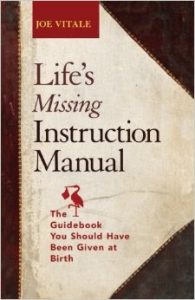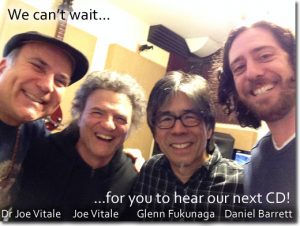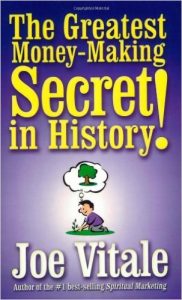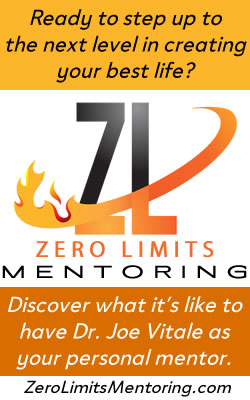Tag: law of attraction
Imaginotions: Part Five
The young woman awakened early, stirred by the flutter of a bird.
She went to her window and saw a bluejay sitting there.
“Good morning,” she said.
The bluejay seemed to wink.
She went to her mirror.
To her confusion, she saw nothing there.
She gasped.
“Why-Why…” she stammered, not sure what to say at her empty mirror.
“Have no fear,” a voice said from outside the window.
She spun around and looked at the window.
The bird was still there.
“Have no fear,” the bird repeated.
This was almost too much for the young woman.
No reflection in her mirror?
A bird that talks?
“Have no fear,” again said the bluejay.
“But I-I don’t understand!”
“Have no fear.”
“But I can’t see myself!” she exclaimed, getting panicky. “And you’re TALKING!”
“The nothingness you see in the mirror is the mirror of the real you,” said the bird.
“I am nothing?!”
“You are everything.”
“But I see nothing in the mirror!”
“Look again,” suggested the bird.
The young woman took a breath, calmed down a bit, and looked into her mirror.
Suddenly she realized all she saw in it was all she felt in her.
The mirror was her.
The mirror reflected all within and appeared without.
She slowly smiled.
“I think I understand,” she said, half to herself.
The bird smiled.
“But what about this business of a bluejay speaking?” she asked.
“Ah, but within the dream, all is possible.”
“All?”
“Whatever you can imagine, and can believe, can be achieved.”
“You sound like Napoleon Hill,” the woman said, smiling.
“I can read, too,” said the bird.
“All things really are possible,” mused the woman.
“And now you may awaken,” said the bird.
Thus the bluejay ended the lesson for the day.
Ao Akua,
PS – You know what this means.
Imaginotions: Part Four
“What do you see?”
He was in an eyeglass store, trying on new glasses.
“I see you, but not very clearly.”
“Good,” the clerk said, smiling, handing him another pair. “Try these on.”
He did.
“What do you see now?”
“I see you, but you are fuzzy.”
The clerk handed him another pair of glasses.
“And now?”
“And now you are tinted.”
Yet another pair of glasses were handed over.
“And now?”
“There you are! I can see clearly now!”
“Good,” said the clerk. “We have discovered that when you have the right pair of glasses to see through, the world is clear and in focus.”
“Like life?”
“Yes,” giggled the clerk. “Glasses are filters, just like the perceptions of your mind.”
“You are very wise, for an eyeglass store clerk.”
“Oh, thank you, but I had to see through the right glasses, too.”
“I’m glad I found the right pair to look through.”
“They were waiting for you all along.”
Ao Akua,
PS – You know what this means.
Puppet of Inspiration
Sometimes I feel like “Inspiration’s Puppet.”
I feel as if I am just a stenographer for – as I called it in my book, The Secret Prayer – “The Great Something.”
I receive an idea from this “vast unknown something” and before you know it I am watching my hands move over the keyboard as the bursting concept in my head evolves into an article, post, song, or book.
But *I* had little to do with it.
All *I* said was YES.
I think we are all like that.
We get ideas and – because we have free will – we can refuse to follow them, or we can say YES and act on them.
Struggle happens when we reject the inspiration.
Success happens when we say YES to the inspiration.
Some of my greatest works were penned by me as Inspiration’s Puppet.
And they were done in record time.
I wrote my global bestselling book Zero Limits in only two weeks.
I wrote the recent manifesto The Awakened Millionaire in about three weeks.
But this doesn’t happen with just books.
When Guitar Monk Mathew Dixon and I enter the studio, we often don’t have any idea what we will record.
But we go in open, willing, and ready.
And out of the space we make, inspiration guides us to create such musical gems as At Zero and The Enlightenment Audio and so much more.
And it all happens pretty fast.
You can do this, too.
So, how do you make inspiration your friend?
First: Go to work.
Inspiration is a guest that does not willingly visit the lazy. ~ Pyotr Tchaikovsky
Second: Set a time.
I write when I’m inspired, and I see to it that I’m inspired at nine o’clock every morning. ~Peter De Vries
Third: Persist.
You can’t wait for inspiration. You have to go after it with a club. – Jack London
Simple, right?
Another example:
A few years ago, in late 2012, I decided that I was done with music.
But then I set an intention to write ten original songs and record them within eight weeks.
It was an “impossible” goal.
After all, I had no songs, no motivation, and no belief.
How would I pull this off?
BUT I stated a clear intention, which got my inner motors revved up, and to my own delight and surprise, songs came “out of nowhere.”
And yes, I recorded that album – all original, all by me, and all in record time.
That album was called Sun Will Rise.* It and all of my singer-songwriter albums are at http://www.cdbaby.com/Artist/JoeVitale1
In a way, I “pulled” inspiration from thin air with a clear intention.
But sometimes inspiration just appears without an intention.
An example:
Back around 2010, I walked around a Rolls-Royce Phantom, the doors swung open so I could peer inside, and mumbled out loud, “That masterpiece is big enough to have meetings in it.”
Even as I said it, I sensed it was a defining moment in my life.
I bought that divine car, and as I filled out the papers for it, I was writing the sales letter in my head for what was to become the now famous Rolls-Royce Phantom Mastermind.
For the next three years I had people flying in from all over the world – Switzerland, Italy, Poland, Japan and more – all coming to me for one reason: to sit in the car and brainstorm with me.
And those masterminds helped pay for the car.
(I later sold the Rolls, bought the Fisker Karma electric car that was a nightmare of problems, and then dumped it to buy a Bentley. And yes, I currently host Bentley Masterminds.)
I love inspiration.
Anyone can do this.
It takes intent, faith, action, and persistence.
But the end result is something pretty glorious.
You get to be “Inspiration’s Puppet.”
How cool is that?
Ao Akua,
PS – * You can read about the making of Sun Will Rise at http://blog.mrfire.com/the-fifth-miracle/
Why Give Now?
You’ve heard that it pays to give, haven’t you?
You’ve heard about tithing as a way to give thanks for what you have and to begin to attract more of what you want, correct?
You’ve heard the stories of famous millionaires and billionaires who give away staggering amounts of money, right?
Well, do YOU give?
Do you give ten percent of your income to the people and places that inspire you, nurture you, and keep you balanced?
Probably not.
I know because I was just like you.
I heard all the stories about giving as a way to receive.
I heard all the teachers and preachers tell me to give more and give often.
But I was “too smart” for that.
I “knew” it was all a scam to get my money.
But one day I awakened to a harsh insight:
The longer I stubbornly refused to give, the longer I remained in struggle.
“No one has ever become poor by giving.” ― Anne Frank
When I finally realized that if I can’t give a dollar out of my last ten bucks today, then I won’t be able to give a hundred thousand dollars out of my first million tomorrow.
It’s a form of self-sabotage to think otherwise.
People who convince themselves that they’ll give later, when they have more money and can “afford it,” are deceiving and deluding themselves.
It all begins now.
Today.
Today I give away everything from books to guitars to cars to cash.
You might think I do it because I’m wealthy.
But I started doing it when I was working a job I didn’t like, getting paid just above minimum wage, and had stacks of bills just like you.
I started giving with what I could give.
As I gave, and prospered, I let my giving reflect my receiving.
And the more I gave, the more I received.
Today wealthy people – and not so wealthy people – are giving.
The big mistake most people make in giving is waiting.
The second big mistake they make is in where to give.
Here’s my thought on the matter:
Give now.
You have some money.
Take ten percent of it and give it away.
Don’t wait till you have more, as you are missing the prosperity of right now.
Where?
Give it to whoever or whatever gave you spiritual nourishment this past week.
That could be anyone or anything, from an Uber driver to a neighbor to a complete stranger who smiled and turned your day around.
But you have to start today and you have to give where you receive inspiration.
Why is this so important?
According to Edward Kramer, in his 1955 book, Pathways to Power:
“Clarence Howard, late head of Commonwealth Steel, used to say, ‘The hole you give through is the hole you receive through.'”
Dan Kennedy, marketing legend, often says it this way:
“The window you receive through is made bigger by how much you give.”
In other words, psychologically and metaphysically, the more you give, the more you open yourself to receive.
And don’t trick yourself into thinking because you helped a neighbor move a couch that you gave.
You gave muscle, but not money.
And don’t think because you took friends out to eat that you gave.
You bought dinner but you didn’t dish out money.
The law is specific: give ten percent or more of what you receive financially to where you received spiritual nourishment.
When you’re honest with yourself, you know who to give it to.
Do it.
Now.
One final thought:
Don’t worry about what the receiver does with what you give.
It doesn’t matter if they burn it, spend it, invest it, give it away, or anything else.
Your duty – if you want to attract more money – is to give now and give often and give where you received inspiration.
Why not do it right now?
Ao Akua,
PS – A decade or so ago I wrote a little book on this subject, titled The Greatest Money-Making Secret in History. I also explain this concept in my free book, Attract Money Now.
Imaginotions: Part Two
“How many grains of salt are there in a mustard seed?” the bird asked.
It was strange enough that a bird was talking. The question was also halting.
“I don’t know.”
“Take a guess,” urged the bird.
“I’d say none.”
“Ah, but you would be wrong,” sang the bird.
“Explain, please.”
“Within the mustard seed are universes of possibility,” explained the bird. “They each await your water and sunshine, which you deliver as attention.”
“I don’t understand.”
“One day you will or won’t,” fluttered the bird.
“But what are you trying to tell me?”
“If you have faith…”
“Like a mustard seed?”
“…then you can move mountains with your word and deed.”
“And one day see birds that talk?”
“Now you’re getting it.”
Are you?
Ao Akua,
PS – You know what this means.












